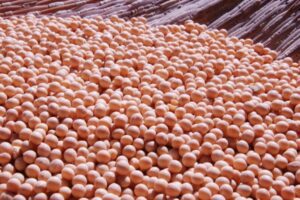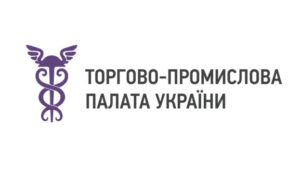
The Agrotrade agricultural holding has received a certificate allowing it to export soybeans to the EU countries. Initially, it is planned to sell 4,000 tons of soybeans from the last year’s crop residues.
As reported on the Facebook page of the agricultural holding on Thursday, the document guarantees the cultivation of non-GMO soybeans using fertilizers and chemicals permitted in Europe.
It is specified that the certification of exports to the EU was carried out by the Ukrainian certification body Organic Standard.
The Agrotrade group sowed 3.1 thousand hectares of soybeans this year, the harvest from which is also planned to be exported to the EU.
Previously, the company certified rapeseed for supplies to Europe.
The Agrotrade group of companies is a vertically integrated holding of a full agro-industrial cycle (production, processing, storage and trade in agricultural products). Processes more than 70 thousand hectares of land in Chernihiv, Sumy, Poltava and Kharkov regions. Profile crops are sunflower, corn, winter wheat, soybeans and rapeseed. It has its own network of elevators with a one-time storage capacity of 570 thousand tons.
The group also produces hybrids of corn and sunflower seeds, barley, and winter wheat. On the basis of the seed farm “Kolos” (Kharkiv region) in 2014, a seed plant with a capacity of 20 thousand tons of seeds per year was built. In 2018, Agrotrade launched its own brand Agroseeds on the market.
The founder and CEO of Agrotrade is Vsevolod Kozhemyako.

The UK has decided to introduce a ban on importing Russian coal in August and on importing oil at the end of December, the UK government reported on Thursday.
“This amendment prohibits the import of oil and oil products, coal and coal products and gold as well as the acquisition, supply and delivery, directly or indirectly of these goods,” according to the clarifications published on Thursday.
It also prohibits the provision of technical assistance, financial services and funds and brokering services relating to these goods.
“The prohibition on the import of gold entered into force on 21 July, the prohibition on the import of coal will take effect on 10 August 2022 and the prohibition on the import of oil will take effect on 31 December 2022,” the UK government said.
The UK Foreign, Commonwealth & Development Office (FCDO) in April reported that the country would refuse to import Russian coal and oil during 2022, and then gas to the extent possible.
“By the end of 2022, the UK will end all dependency on Russian coal and oil, and end imports of gas as soon as possible thereafter,” the FCDO said.
BAN, IMPORT, RUSSIAN GOLD, UK

In 2022, Ukrainian agricultural producers attracted 26,620 loans totaling UAH 47.74 million under the Affordable Loans 5–7–9 program, the website of the Ministry of Agrarian Policy and Food reported on Thursday.
The report clarifies that from mid-March to May 31, 2022, a special program was in place for preferential lending for sowing crops, under which farmers could raise up to UAH 60 million at 0% per annum, and 80% was guaranteed by the state. In total, during the period of its work, agricultural entrepreneurs received UAH 38.51 billion in loans. Since June 1, applications for lending to the agricultural sector have been accepted within the framework of the usual 5-7-9 program.
With its help, small and medium-sized agricultural entrepreneurs receive loans for the purchase of fixed assets and reimbursement of any expenses associated with the implementation of agricultural activities. The program is also aimed at creating jobs in enterprises.
In total, for the period June 1-July 21, Ukrainian banks allocated UAH 9.19 billion to 8.53 thousand agrarians and farmers, including UAH 443.8 thousand under the portfolio guarantee program.
The leaders in terms of lending for this period were Kyiv – UAH 1.540 billion, Khmelnytsky – UAH 1 billion, Kirovohrad – UAH 0.66 billion, Vinnitsa and Poltava – UAH 0.61 billion each.
The largest lending volumes for the specified period came from: Raiffeisen Bank – UAH 3.29 billion, Oschadbank – UAH 1.71 billion, PrivatBank – UAH 1.18 billion, Ukrgasbank – UAH 0.91 billion, Ukreximbank – UAH 0.61 billion.
“The government and the Ministry of Agrarian Policy are well aware of how important it is for farmers to receive preferential loans during the war. Therefore, we are working on launching new credit lines for farmers, and we also expect that in the near future the conditions for paying the body of the loan on preferential lending will be extended from 6 to 12 months,” the ministry quotes its first deputy minister, Taras Vysotsky.

Since the beginning of the war, Ukraine has received about $13 billion in external funding, including $4.4 billion in June, Finance Minister Sergei Marchenko said on the air of the national telethon on Thursday.
“This month we will receive or expect more than $3 billion. By the end of the year, we are talking about $16 billion to $17 billion, taking into account what has already been received,” he said.
The head of the Ministry of Finance stressed that the government is trying to keep the monthly budget deficit within $5 billion.
“And even make the necessary decisions to narrow this frame,” he added.
According to him, this is not about raising taxes, but about expanding the tax base.
At the same time, Marchenko noted that so far the country cannot do without partial financing of the state budget by the National Bank through the purchase of war bonds.
“These conditions are created by the fact that we are at war. We cannot finance our army from external sources: grants and loans. Our partners do not give us funds for a military campaign. Therefore, a military campaign is either due to taxes or due to, including including the redemption of bonds by the National Bank. This is a temporarily forced step in the conditions when we are at war, “the head of the Ministry of Finance explained.
As reported, since the beginning of the war, the NBU directly financed the state budget through the purchase of “military” bonds for UAH 225 billion, including UAH 105 billion in June.

The member states of the European Union have agreed to mobilize the fifth tranche of military assistance in the amount of EUR 500 million in support of the Armed Forces of Ukraine, said head of EU diplomacy Josep Borrell.
“Participated at Ministerial Ukraine Defence Contact Group meeting. EU Member States agreed to mobilise 5th tranche of military assistance of EUR 500 million to further support Ukraine‘s Armed Forces. EU remains focused & steadfast in its support for Ukraine, together w partners,” Borrell said on Twitter Wednesday evening.

Ukrainian agrarians need urgent support in replenishing working capital, prolonging loans and settling relations with retail chains, because due to the enormous debt to processing enterprises, agricultural producers cannot purchase raw materials and grain from farmers.
A corresponding appeal to Prime Minister Denys Shmyhal with a proposal to hold a joint meeting to find solutions to prevent negative trends in the grain market was sent on July 20 by members of the agro-industrial complex entrepreneurs’ committee at the Chamber of Commerce and Industry (CCI) of Ukraine, according to the website of the organization.
“It has never been as difficult as it is today for farmers. The situation needs state intervention due to a number of problems: there are ultra-low purchase prices, lack of storage facilities, slow logistics, retail debt,” the Chamber of Commerce and Industry quotes its member, first vice- President of the Association of Farmers Viktor Sheremet.
According to the Chamber of Commerce and Industry, due to the blocking of Ukrainian maritime logistics, hostilities, higher fuel prices, shortage of working capital and lower prices for agricultural raw materials, a significant reduction in winter crops for a new crop is expected.
“Probably, the current crop of corn will remain under the snow,” the organization stressed in the appeal.
In addition, this year a serious challenge for farmers will be the purchase of seeds, fertilizers, fuel, the preservation and export of grain, a number of enterprises and farms are expected to go bankrupt due to the loss of access to export products and the challenges facing the agricultural sector of Ukraine.
“Given the threats that complicate the situation on the market, following the results of the discussion of industry problems, the meeting participants decided to appeal to the Prime Minister of Ukraine Denys Shmygal with a request to hold a joint meeting with interested ministries and departments, business representatives, industry associations, donor organizations to consolidate efforts to search for effective solutions to ensure the organization of the harvesting campaign, storage of grain, autumn sowing and activation of exports,” the Chamber of Commerce and Industry concluded.